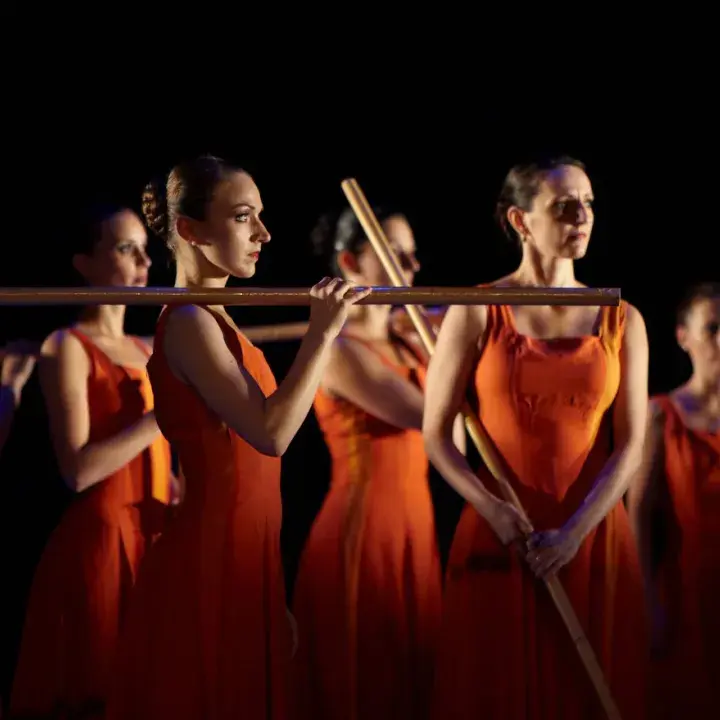The symbolic meaning of dream has been known since the dawn of history. In the archaic mythologies of natural peoples, dream is reality, sometimes accorded a higher order than consciousness. However, the “hidden small doors” of dreams in Dream Time do not open onto the “cosmic primordial night” (Jung). The “dream god” of Dream Time is not Hypnos of Greek mythology, nor is the performance a Freudian analysis…
Dream Time is a paean of praise to human dancing. The dreams of its creators – or their inferred memories – come to life from a world experienced, or believe to have been experienced, demonstrating their relationship to traditions, the secrets of the past, to the diversity of the present.
In dream, everything can happen. Dream is magic, it opens a door between life and death, between reality and fiction. Dream is the mirror of our repressed desires. Dream is travel.
For the performance, Nikola Parov has composed a new work, drawing inspiration on Hungarian and in the wider sense, Carpathian Basin and Balkan folk music, as well as putting special emphasis on the musical cultures of Eastern peoples related to the Hungarians (Hanti, Mansi etc.). The music of Dream Time is purposefully eclectic, and besides tradition incorporates the characteristics of jazz, as well as the post modernity of today’s world music.
The scenes of the choreographers led by Gábor Mihály follow the best examples of contemporary folk dance arrangements, displaying great changes of mood before us. The material of the dance themes derive from Carpathian Basin folklore, which the creators have chosen, condensed and stylized according to the merciless rules of theatre. Individual associations and additional thought and emotional content are arranged to individual dances, so that this way they can become the expressive device of the feelings of modern man, his thoughts, and his individual or communal identity.
First performance: 6 October 2010, 7 pm, Festival Theatre
The performance is a co-production of the Hungarian Heritage House and the Palace of Arts
Sponsored by The National Cultural Fund of Hungary

